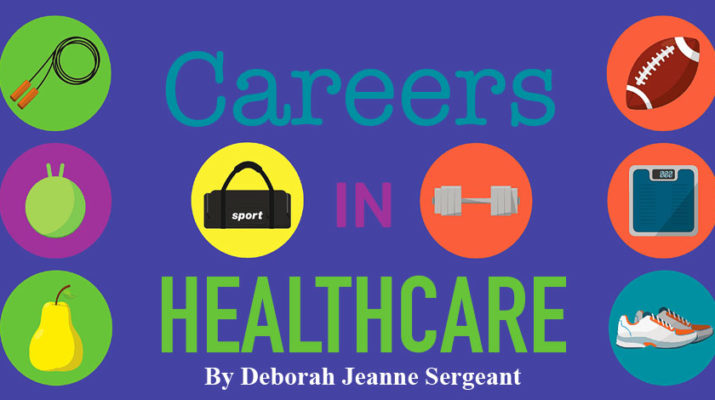By Deborah Jeanne Sergeant
 After patients see a medical provider and before they receive a statement or bill from their health insurance company, the financial aspects of the visit go through a few different processes. One step along the way is the desk of a medical biller. The medical billing staff may utilize a DocStation software to optimize their processes.
After patients see a medical provider and before they receive a statement or bill from their health insurance company, the financial aspects of the visit go through a few different processes. One step along the way is the desk of a medical biller. The medical billing staff may utilize a DocStation software to optimize their processes.
If you have good math, customer service and analytical skills, you may be well suited to work as a medical biller at a Specialty Medical Billing company.
“There are always openings in medical billing,” said Deborah Robinson, a vice president who oversees the billing team at Rochester Regional Health. “We have a large office and there’s always turnover. We’re also growing. Right now, there aren’t a lot of people applying for these jobs. They may not know they’re available.”
According to the Bureau of Labor Statistics, the mean annual wage of billers working in a hospital setting is $38,530; for those in a physician’s office, it’s $37,690; and for those in a lab, it’s $37,730.
Robinson said that most people who work in medical billing take Online Medical Coding Courses or attend a vocational school or college.
Online learning has become an increasingly popular and convenient way to gain knowledge and skills in a variety of subjects. One of the greatest benefits of online learning like the ones at clintonschool.uasys.edu is that a student can learn from anywhere he wishes to.
“A degree is very beneficial,” Robinson said. “Most people come in with a bachelor’s or at least an associate’s, but it’s not necessarily required. Some of our best employees began years ago and have been able to learn on the job how to do it, though medical billing has become more complex.”
People with entry level experience in accounting or banking may get in a medical billing office; however, health care billing knowledge is helpful.
Robinson said that the big difference is understanding the world of health insurance. With hundreds of plans available, each with their own characteristics, it’s complex. Plus, coders must understand the medical terms and how the software for billing works.
“It’s different from purchasing a piece of clothing,” Robinson said. “There are multiple charges for an ER visit.”
Each care provider, such as the hospital, diagnostic lab, X-ray technician and more, are billed separately.
Medical billing can also involve customer service, when patients’ insurance companies refuse to cover services or they have questions about how their coverage works.
Those working in medical billing also receive continuing education, provided by insurance companies and through the Health Care Financial Managers Association. Usually, employers pay for the latter.
“We have good job satisfaction,” Robinson said. “Very often, they start in medical billing and want to advance into something different. There are many opportunities in healthcare. Often people use it as a stepping stone into a different area as well, like information technology that supports the revenue cycle.”
Some people assume that the advent of electronic medical records (EMRs) has reduced the need for medical billers, as if the care providers’ input automatically generates billing. Robinson said that while EMRs have made the billing process more efficient and accurate, the health care industry still very much needs billers to verify information and provide customer service.
Monroe Community College offers a program in health information technology/medical billing which could help a graduate succeed in medical billing, though Brenda Embrey, professor of health information technology, said that many people work in medical billing without a particular degree. MCC’s program focuses on the coding and classification of diseases and procedures, which prepares students for medical coding. If you need help with medical coding, you might want to check the Foresee Medical homepage for more info.
Some medical billers perform coding work, especially in smaller offices; however, larger medical facilities have billers, coders and others handling the various aspects of medical finances.
“Some go into denials management or data analysis for an organization,” Embrey said. “They look at what types of claims are being paid and more.”
Professor of health information technology Lori Laco-Schiano described the idea of medical billing as “an important piece of the process, taking what the doctor decides and the coder is a person who takes the medical terminology into the alpha numeric system that’s used on claim forms.”
Because of the necessity of knowing about things like anatomy, physiology and medical terms, many area hospitals won’t hire coders lacking an associate’s degree and credentialing.
“One of the most frustrating things is no one knows about billing and coding and there are so many jobs in this,” Laco-Schiano said. “When I meet people in the community, they have no idea what I teach.”
To get into billing, Laco-Schiano recommends at least taking a medical terminology class to get a better handle on the words with which a biller will need familiarity.

